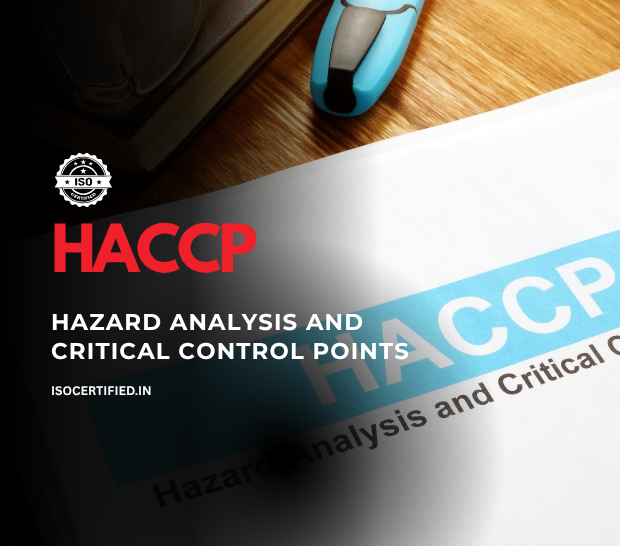- Globally Recognized Certification
HACCP - Hazard Analysis and Critical Control Points
HACCP Certification demonstrates implementation of systematic preventive food safety management identifying, evaluating, and controlling biological, chemical, and physical hazards throughout production processes. This internationally recognized system ensures food safety through critical control point monitoring rather than relying solely on end-product inspection.
Request A Free Quote
What is HACCP – Hazard Analysis and Critical Control Points Certification
HACCP Certification is a science-based food safety management system that identifies potential hazards at specific points in food production and establishes critical control measures to prevent, eliminate, or reduce risks to acceptable levels. This certification requires systematic hazard analysis covering raw materials, processing steps, storage, distribution, and consumption, followed by determination of critical control points (CCPs) where control measures can effectively mitigate identified risks. HACCP principles mandate establishing critical limits, monitoring procedures, corrective actions, verification activities, and comprehensive documentation proving continuous food safety control.
The certification process involves developing HACCP plans specific to each product and process, implementing seven core principles including hazard analysis, CCP determination, critical limit establishment, monitoring systems, corrective action procedures, verification protocols, and record-keeping systems. Certified facilities undergo regular audits verifying effective implementation, staff training, supplier controls, and continuous improvement of food safety management. HACCP certification integrates with prerequisite programs covering sanitation, pest control, equipment maintenance, and personnel hygiene creating comprehensive food safety frameworks.

- Benifits
Key Benefits of HACCP Certification
This certification reduces foodborne illness risks, ensures regulatory compliance, protects brand reputation, and demonstrates proactive food safety commitment that satisfies customer requirements and prevents costly recalls.
Foodborne Illness Prevention
Systematically identify and control hazards before they cause contamination, protecting consumers from biological, chemical, and physical food safety risks.
Regulatory Compliance Assurance
Meet mandatory food safety requirements in numerous countries where HACCP-based systems are legally required for food business operations.
Reduced Product Recalls
Minimize costly recalls, brand damage, and legal liability through proactive hazard prevention rather than reactive crisis management approaches.
Customer Confidence Enhancement
Demonstrate documented food safety commitment that satisfies retailer requirements, passes customer audits, and builds consumer trust in products.
- Standard Process
Your Path to ISO Certification
Four straightforward steps to achieve ISO certification: consultation, documentation, payment, and certificate delivery—all managed remotely for your convenience.
Free Consultation
Connect with our ISO experts to discuss your certification needs and requirements.
E-mail Documents
Submit your organization's documents and information securely via email.
Make Payment Online
Complete your payment conveniently through our secure online payment gateway.
Get ISO Certificate
Receive your internationally recognized ISO certification upon successful audit completion.
- Which Industries?
Who Needs This
Food manufacturers, processors, packagers, distributors, and catering operations handling any food products require HACCP certification. Businesses exporting food internationally or supplying major retailers must implement certified HACCP systems.
Meat & Seafood Processing
Dairy & Beverage Production
Ready-to-Eat Food Manufacturing
Food Service & Catering
- Ongoing Requirements
Compliance & Maintenance
Post-certification, organizations must fulfill ongoing requirements including annual surveillance audits, internal reviews, and recertification to maintain their ISO certificate validity.
Annual Surveillance Audits
Certification bodies conduct yearly audits to verify continuous compliance with ISO standards and ensure your management system remains effective and up-to-date.
Recertification Every 3 Years
Complete recertification audit required every three years to renew your ISO certificate and demonstrate sustained commitment to quality management excellence.
Internal Audits & Reviews
Regular internal audits and management reviews must be conducted to monitor performance, identify improvements, and prepare for external certification audits.
Documentation & Training Updates
Maintain current documentation, update procedures for process changes, and provide ongoing training to employees on ISO requirements and their responsibilities.
